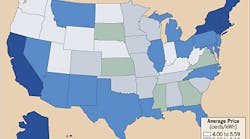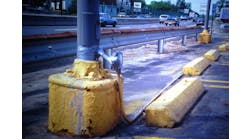Competition Drives Down the Cost of Electricity
The construction boom has resulted in excess generating capacity and forced energy providers to lower electricity prices. The increased competition could cause prices to drop from 7.3 cents/kWh in 2001 to 6.3 cents/kWh by 2007. According to the Energy Information Administration (EIA), restructuring in the electrical industry is contributing to the projected decline in prices. An increase in natural gas prices and the need for new generating capacity, however, could boost electricity costs after 2008. By 2020, prices are projected to return to 2002 levels of 6.6 cents/kWh, and by 2025, they may reach 6.7 cents/kWh. Future trends in retail electricity prices may depend on capacity, weather, fuel prices, electricity use, and electricity generation, transmission, and distribution costs.
The pipeline of generation projects dried up after the fall of Enron, according to Henwood's New Generation Index. The pipeline of generation, which includes projects under construction, in permitting, being studied, or announced, peaked at 489,000 in November 2001. It's now at 354,000 units, which is its lowest level in two years. Several projects were put on hold or cancelled entirely, causing new generation under construction to drop 38% from its peak of 113,000MW in May 2002.



